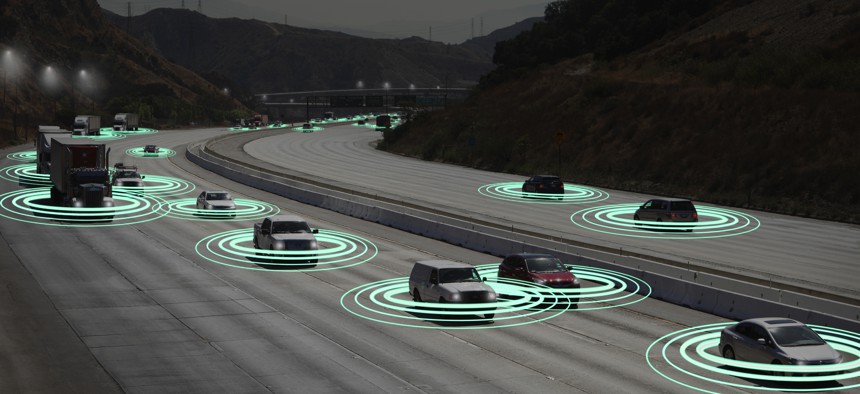Connected vehicle data often goes unused

GettyImages/ Paul Taylor
Cities that can access and manage data from connected vehicles will find it easier to improve road safety, emergency planning, congestion and electric vehicle expansion, a recent report says.
With new transportation technologies being rolled out every year – and local governments’ increased focus on expanding smart city infrastructure – connected vehicle (CV) data is expected to become a valuable commodity for future citywide initiatives.
Connected cars generate data attributes like engine status, location and speed from the vehicle’s electronic control units, controller access networks and infotainment systems. The data can be sent to the owner's smartphone or to other vehicles and roadside units that use it to monitor traffic and inform smart city projects and safety services.
However, a recent report from mobility intelligence software company Otonomo shows that most cities are not using CV data efficiently, or to its full potential. The survey, which included 50 smart city stakeholders across 26 states, found that only 8% of respondents are actually using CV data to deliver better transportation and mobility services.
Otonomo’s report found that traditional traffic monitoring infrastructure like CCTV systems and in-road sensors was unable to deliver the granular data city managers need to improve their services.
Cities do have a hunger for vehicle data, though. Of the smart cities surveyed, 62% are using vehicle data to improve roadway management, urban planning and parking While only 22% are using the data for real-time traffic management, 31% plan to do so in the future, and 68% report using vehicle data for managing mass events.
One of the study’s key findings was the importance of a single data stream that aggregates information from multiple sources – not just vehicle data, but also information on local weather, events or emergencies. This data-rich environment has led to an increased focus on building applications that integrate CV data, with 46% reporting that they plan to build a platform designed to provide public and private transportation options for residents.
Ultimately, the report finds that next-generation city services will depend on the ability of real-time vehicle data to improve traffic management and safety.
Among forward-looking cities is Long Beach, Calif., which recently announced a pilot program that tests whether location data shared in real time from connected vehicles to traffic signals and other CVs can improve traffic flow. An 18-mile stretch of I-85 in Troup County, Ga., is testing communication between roadside radios and connected vehicles provided by Kia. Data from the connected vehicles will help the Georgia Department of Transportation analyze traffic so it can send out accidents as well as traffic and weather advisories – not only improving transportation safety but allowing commuters to get to their destinations faster.
“When leveraged properly, connected vehicle data and mobility intelligence make a smart city smarter with improved road safety, upgraded emergency planning, reduced congestion and accelerated EV expansion in their communities,” Otonomo CEO Ben Volkow said in a release.





